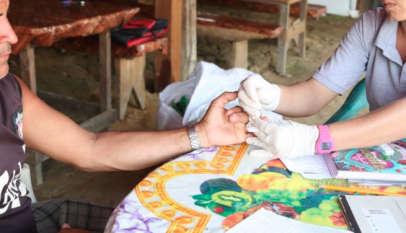World Bank parleys Kano education stakeholders on its ‘Nigeria Adolescent Girls Project’
As it prepares to begin implementation of the new program: “Nigeria Adolescent Girls Project,” the World Bank on Friday hosted a forum with stakeholders in Kano state’s education sector. The goal of the new project is to support Nigerian states identify barriers to education of girls and also enhance the capacity of stakeholders to advocate for adolescent girls’ education and transition to higher levels.

The idea for the stakeholders’ forum, which was being hosted by World Bank around the proposed focal states for the new program, was to gather first-hand information from adolescent girls themselves, parents and community members, on the real causes of girls dropping out-of-school and not transitioning to higher levels. The session was also aimed at identifying the specific needs of adolescent girls and those of their parents, which if collectively addressed, the girls will not only be retained in school but also transition to higher levels of education.
While addressing the stakeholders’ forum, Rachid Benmessaoud, World Bank’s Nigeria country representative, said empowering women and girls was part of nation building hence the World Bank’s interest in implementing an adolescent girls’ education programme in Nigeria.
“Empowering women is building the nation; hence my interest in having a girls education program in Nigeria. It is all about the things girls need to live a productive and respectable life. I want a project that is responsive to the needs of the girls as well as mothers and fathers. You are going to help us in designing the project, you will also help us implement and monitor it – I will not run this project for you,” Mr Benmessaoud told the gathering of education stakeholders in Kano.
The stakeholders who attended the forum included representatives of government agencies, Civil Society organizations (CSOs), Community-Based Organisations (CBOs); and Parent Teachers Associations (PTAs). Others were representatives of School-Based Management Committees (SBMCs), Mothers’ Associations (MAs), education sector donor-funded projects in Kano state as well as community women.
Mr Benmessaoud said, considering the huge size of Nigeria, he wasn’t interested in a pilot project that could only target thousands of girls; instead, he desired having a project that would target millions of girls, by ensuring they did not drop out of school and also transitioned to higher levels of education. “Because if you target only a 1000 girls in Nigeria, that won’t make any difference.”
The World Bank fact-finding mission explored the challenges of the adolescent girls and also the thinking of members of the community about those challenges as well as what was supposed to be done to address them. The new project hopes to address issues to do with renovation of schools, building of classrooms and conveniences; provision of teaching and learning materials; supporting parents with capital (to sustain their daughters’ education from basic up to higher level) as well as identifying rightful custodians for managing and maintenance of the schools.
In a related development, the World Bank team visited the Governor of Kano state, Dr Abdullahi Umar Ganduje; the Emir of Kano, His Royal Highness Muhammadu Sanusi II, as well as selected schools and communities where they had no-holds-barred discussions on why girls drop out of school, retention and transition – with adolescent girls, members of mothers’ associations and community women. The team was at the Tudun Maliki School for Children with Special Needs; Government Girls Secondary School, Kwa; Special Primary School, Ungogo as well as Jogana community where they interacted with community women.
Between 2015 and 2019, the World Bank implemented the Global Partnership for Education-Nigeria Partnership for Education Project (GPE-NIPEP) focused on improving access and quality of basic education with particular attention to girls’ inclusion across five northern Nigerian states including Kano. Nigeria is home to over 10.5 million out-of-school-children, majority of who are girls and from northern states such as Kano, which (alone) is home to over 3 million out-of-school children.










